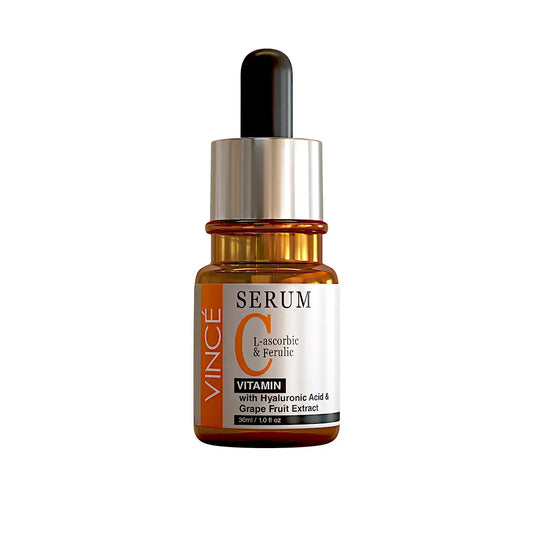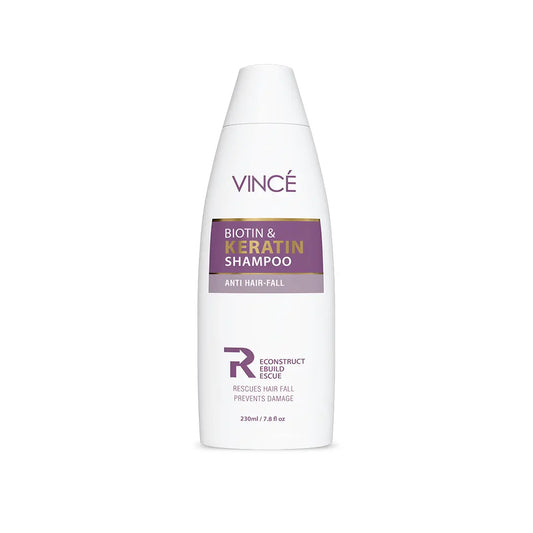Everything You Need to Know About Dry Skin in Summer

Summer days can be great, of course, but you don't have to be quick to agree. In this hot air and high-temperature season, one's skin suffers the most. Problems such as roughness, peeling and itching can affect almost any skin type.
However, the most affected must be dry skin. Dry skin hates hot days. When left unmanaged, they can be gone astray and lose the right path.
Dryness is an uncomfortable condition that is marked by itching and cracking. It can happen for a variety of reasons. Your skin may become naturally dry. Dry skin affects many parts of the body. It usually affects the arms, hands, and legs.
Types of Dry Skin

Dry weather, hot water, and exposure to certain chemicals can cause dryness your skin to become dehydrated. In addition, underlying medical conditions can also cause dryness or dry skin.
Dermatitis is a medical term for extremely dry skin. Dermatitis has many different types.
1. Contact Dermatitis
Contact dermatitis occurs when the skin reacts that touches it, causing inflammation.
- Irritated contact dermatitis can occur when your skin is exposed to an irritating chemical agent such as bleach.
- Allergic contact dermatitis can occur during the skin is exposed to a substance you are allergic to.
2. Seborrheic Dermatitis
Seborrheic Dermatitis occurs when the skin produces oil. It usually results in red and rough rashes on your scalp. This dermatitis is common in children.
3. Atopic Dermatitis
Atopic Dermatitis is also called eczema. It is a chronic skin condition that causes dry, itchy spots on your skin. It is common among young children.
Other conditions, such as diabetes and psoriasis, can cause your skin to dry.
Risk Factors for Dry Skin
Dry skin can affect anyone. But some risk factors increase your chances of developing dry skin, including:
- Age: Older people are likely to develop dry skin more. With age, your pores naturally produce less oil, which increases your risk of dry skin.
- Medical history: If you have a family history of these conditions or other allergic diseases, you are more likely to experience eczema or allergic contact dermatitis.
- Season: Dry skin is more common in the autumn and winter when moisture levels are relatively low. In summer, too much moisture helps prevent your skin from drying out.
- The habit of bathing: Frequent bathing or washing with very hot water increases the risk of your skin becoming dry.
Common Skincare Mistakes for Dry Skin

Before doing the right thing for dry skin, you need to know what is wrong so that you can correct any mistakes you are making in your skincare routine. First, take a look at the common mistakes of dry skin.
1. Scrubbing Skin Aggressively
So you look flaky with white spots on your face, even in winter. Your first inclination should not aggressively clean it with a hard exfoliator. Dry skin does not need to be treated differently from any other skin type, i.e. with a gentle hand.
2. Bathing at High Temperature
A hot shower can feel very comfortable, especially in the colder months but is not good for dry skin immediately after. In addition, it can remove natural sebum compared to skin production, making it feel more dehydrated.
3. Not Being Cautious Of the Environment
Locked in an air-conditioned room can feel like a dream in the summer, but your skin may not. When your surroundings are dry and lack moisture, your skin does not get anything. A dry climate and dry air-conditioned rooms can make dry skin feel dry. Ensure you have a humidifier to keep it comfortable and protected from moisture.
4. Retain Natural Moisture
When choosing a product, select the product that does not deplete your natural oils, hard scrubs, gel formulas, and foams that may not be right for your skin type.
Can Dry Skin Cause Acne?
While some may think you have acne only when your skin is oily, this is not the case. Dry skin can also cause acne because sometimes, there are blemishes when there is general damage to the skin.
To combat dry skin and acne breakouts, consider continuing your skincare routine and applying a moisturizer targeted twice a day for acne-prone skin.
Deal With Dry Skin in Summer Season

1. Face Wash
Some soaps and cleansers contain chemicals that remove your skin's natural moisture, leaving it dry. Instead, choose mild facial washes that have moisturizing properties and are hypoallergenic. Also, look for fruit enzymes like papaya face wash and ensure they are free of harmful chemicals like parabens.
2. Day/Night Cream Based On Your Skin Type
- A good moisturizer is best for dry skin. Choose the moisturizer with ceramides, which can hydrate your skin and seal in moisture.
- For the day, look for high SPF in your moisturizer to protect your skin from the sun's harmful UV rays and pollution and also helps fight free radicals.
- A good moisturizer should ideally contain active ingredients such as niacinamide, phytosphingosine and vitamin C.
- Glycerin is lighter on the skin than lanolin, which reduces the risk of allergic reactions for sensitive skin.
- Always choose a moisturizer according to skin type. In summer, mild, gel-based moisturizers work best.
- Compound skin needs a mild, water-based moisturizer for oily areas. Use a heavy, cream-based one to dry your face and neck areas.
- For dry skin, you can choose a cream with additional hydration properties.
- Sensitive skin needs hypoallergenic so that it does not rupture due to irritation.
- Oily skin needs non-comedogenic moisturizers that are oil-free so they don't block pores.
For a night moisturizer, look for one that contains retinol (vitamin A), which your skin needs to rejuvenate its cells while you sleep. Sometimes, these are based on prescriptions. So consult your doctor, as not all retinol-based creams are good for dry skin.
Use an overnight hydrating mask once a week for extra moisture.
3. Avoid Hot Water
Hot water makes the skin drier. It is best to take a cold bath to cool the body and prevent the skin from drying out in summer. Keeping the body temperature low in summer protects the skin from dehydration, dryness and itching.
4. Have a Healthy Skin Care Routine
It is important to maintain regular skin health care procedures during the summer. First, use the double cleansing method to remove sweat, dirt and grime from your skin. Then apply water-based toner, then sunscreen and moisturizer.
At night, use cleansing oil and foaming cleanser to remove dirt and other impurities from your skin and remove them with a nourishing moisturizer. Look for ingredients like Hyaluronic Acid and Vitamin C, which add moisture to the skin layers.
You can even take a hydrating spritzer or mustard and spray it on your face a few times a day. It can refresh you and give your skin some extra, much-needed moisture.
5. Cover Skin
In addition to wearing sunscreen, cover parts of your body and face in the sun. Wear a wide-brimmed hat, sunglasses and clothes that cover your body completely. Also, choose thick clothes to block the sun's rays and bright colours to remove the sunlight.
6. Use Humidifiers
Air conditioners can dry your skin in summer by absorbing moisture from the air. If you live in a place with very dry, hot weather, you can use humidifiers in your home to control the humidity in the air. It will prevent your skin from drying out.
7. Drink More Water
The best way to make the skin glowing in the summer is to stay hydrated. Drinking 10 to 12 glasses of water hydrates the skin from the inside out and prevents it from drying out. Drink more water a day to ensure that your skin gets its moisture.
8. Diet
- Some foods help keep the skin hydrated from the inside out. To avoid dry skin in summer, include these things in your diet:
- Cucumbers are high in antioxidants and vitamin C that reduce skin inflammation. The peel contains silica, which helps keep your skin hydrated, strong and nourished.
- Avocado is the best food for dry skin in summer. They are rich in omega-6 fats and vitamin E, preventing premature ageing and keeping skin moisturized.
- Tangerines and citrus fruits contain vitamins A, C and beta carotene, which increase collagen production in the skin. They prevent wrinkles and streaks from appearing. They hydrate the skin and eliminate sun damage.
- Coconut oil can apply to the skin due to its high moisturizing properties. It also contains antioxidants and soothes skin conditions such as atopic dermatitis.
- Dried fruits, nuts and seeds are well-known sources of fatty acids such as omega-3 and vitamin E.
- Sunflower seeds, Walnuts, pumpkin seeds and almonds can prevent sun damage, reduce inflammation and are an excellent natural way to avoid dry skin.
- Fatty fish, which is also rich in omega-3, can counteract the damage caused by the sun's UV rays. They may also help reduce inflammation in skin conditions such as dermatitis and psoriasis.
What to Avoid Preventing Dry Skin?
Some certain foods and beverages can cause dehydration on the inside, further drying out your skin. In the summer months, when you consume water and fresh fruit, here is a list of things you should avoid:
1. Salt
Eating salty and processed foods can also cause dehydration, as excess salt in the body removes fluid from the cells and removes salt the body.
It dries the skin. If eating too many chips and fries, drink enough water to replenish the fluid level.
2. Sugar
Eating sugar is bad for the skin, especially if you consume too much. Sugar can negatively affect collagen and weaken it, drying the skin.
The damage leads to collagen breakdown. In addition, it means the skin loses its natural elasticity. You need to follow these amazing steps to improve skin elasticity.
3. Carbohydrates
Avoid high glycemic carbohydrates on white bread, pasta, and white rice in the summer.
They harm the skin like sugar because the metabolism of these foods is the same. If used excessively, it can cause wrinkles and fine lines.
4. Coffee
Avoid too many cups of coffee. It, like alcohol, can cause skin dehydration as it narrows your blood vessels.
In addition, it reduces the flow of fluid into your skin, which means the skin does not get enough hydration. It is especially harmful to the lower part of the face under the eyes.
Conclusion
Due to excessive heat and dehydration, dry skin is a common problem in summer. But if you take the right steps to moisturize and hydrate the skin and eat the good foods, you can prevent your skin from drying out in the heat.



